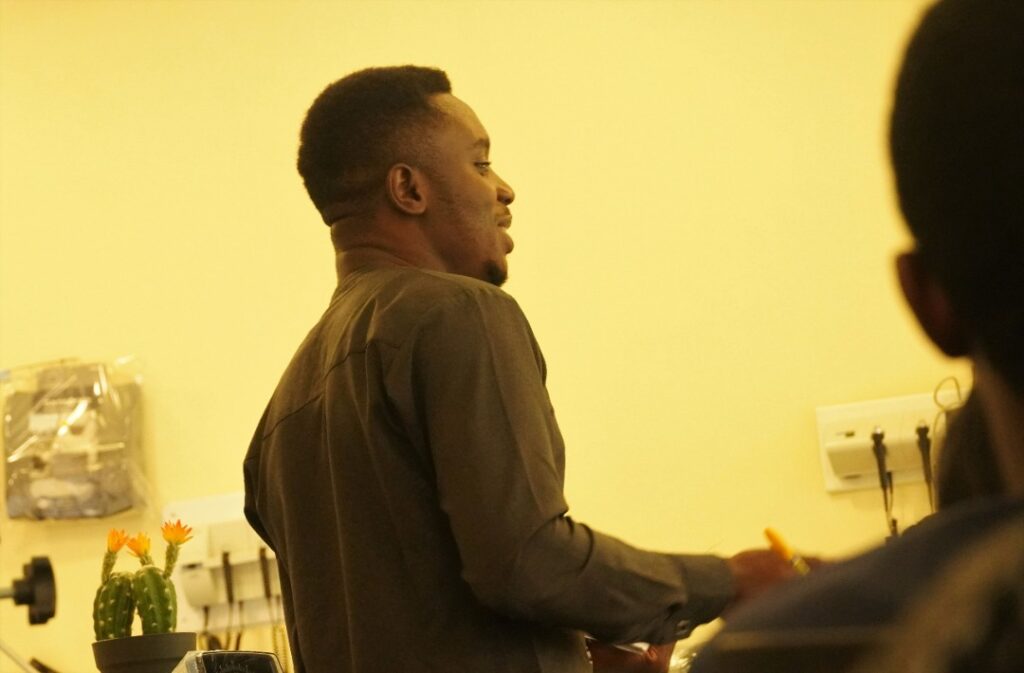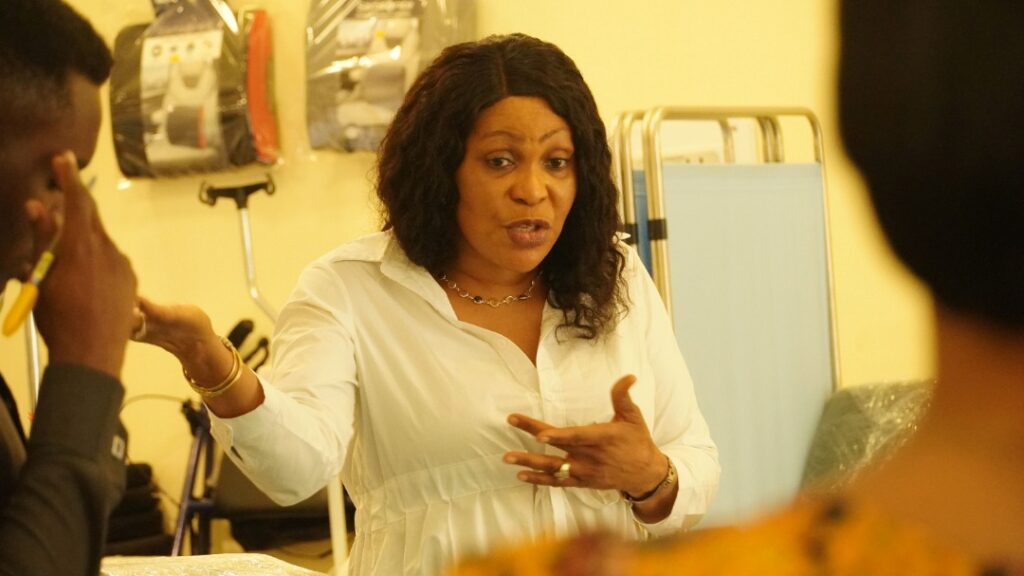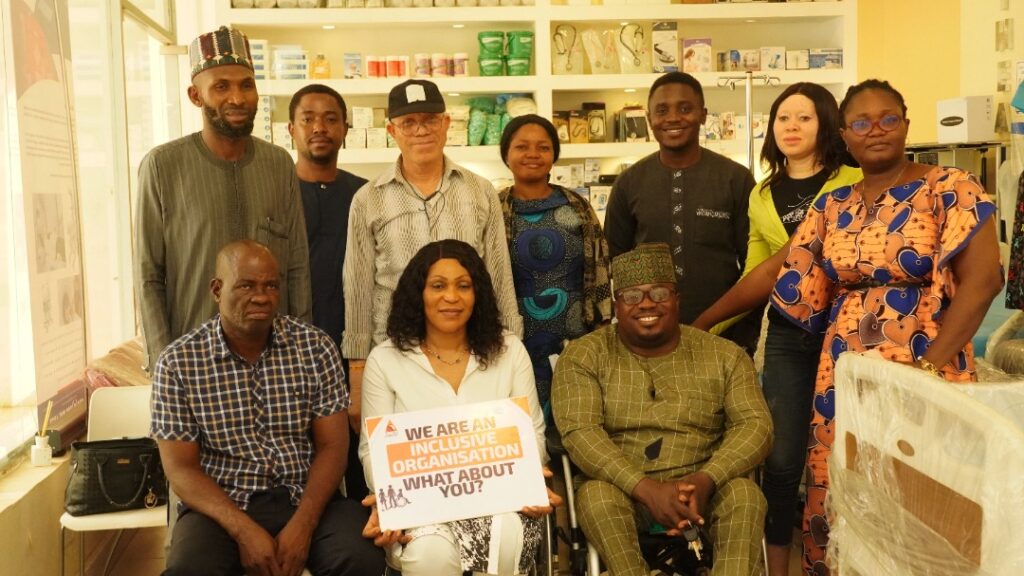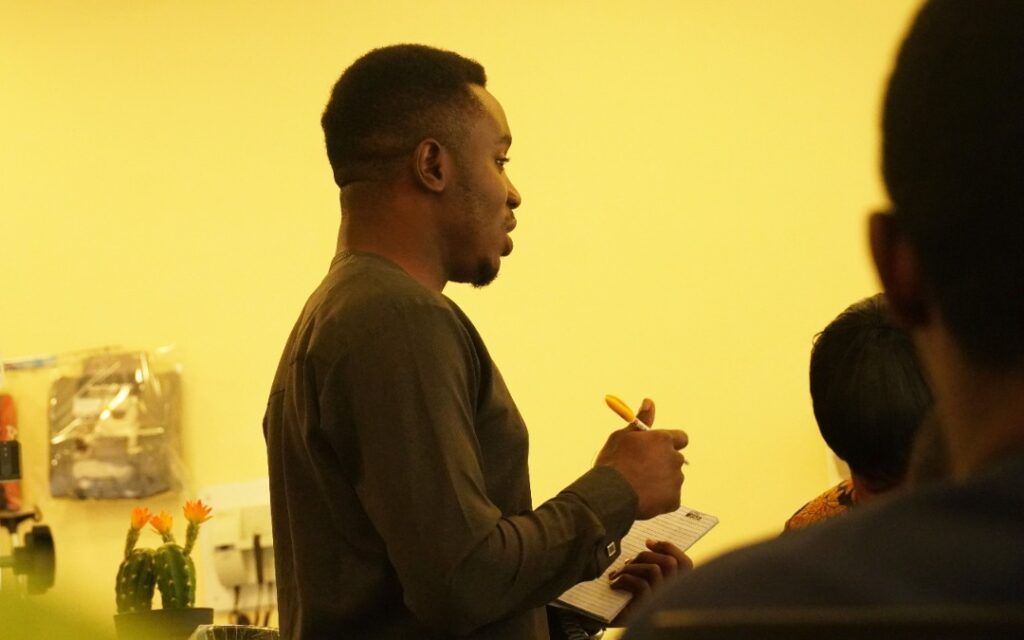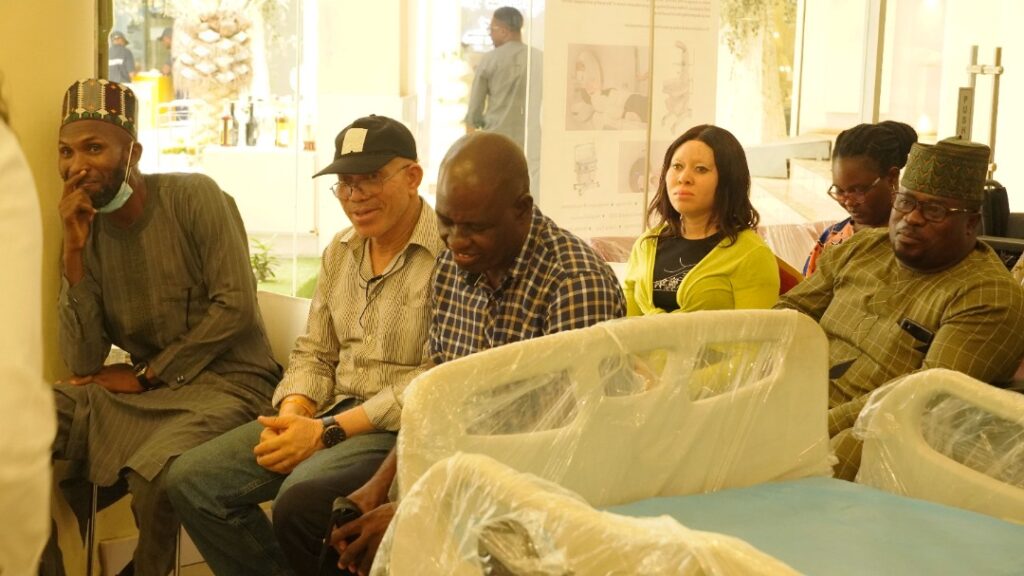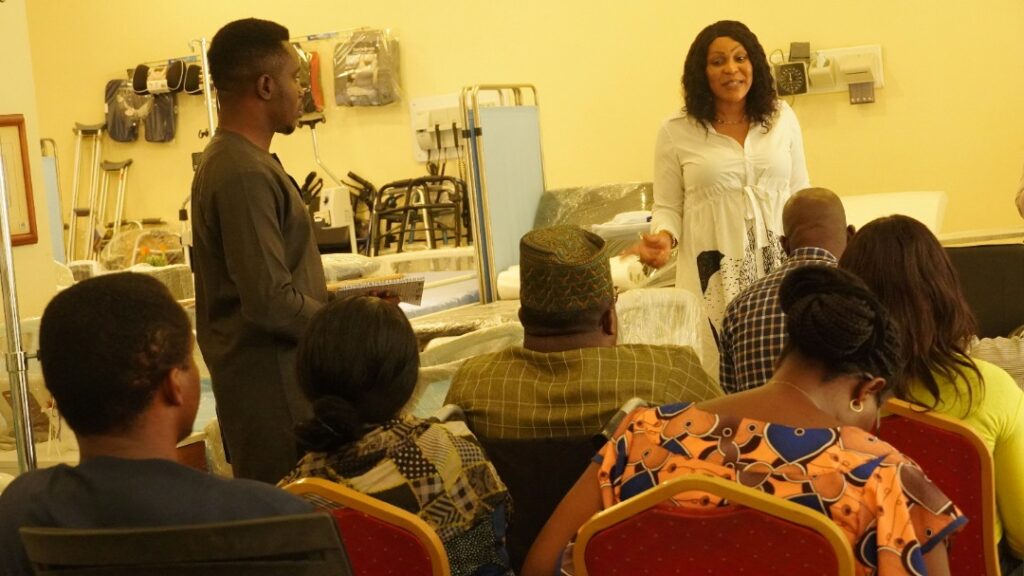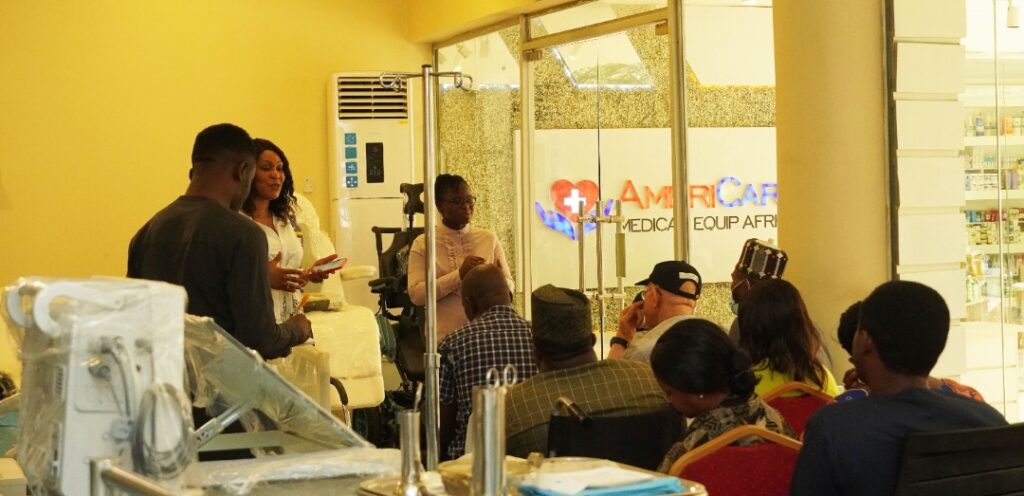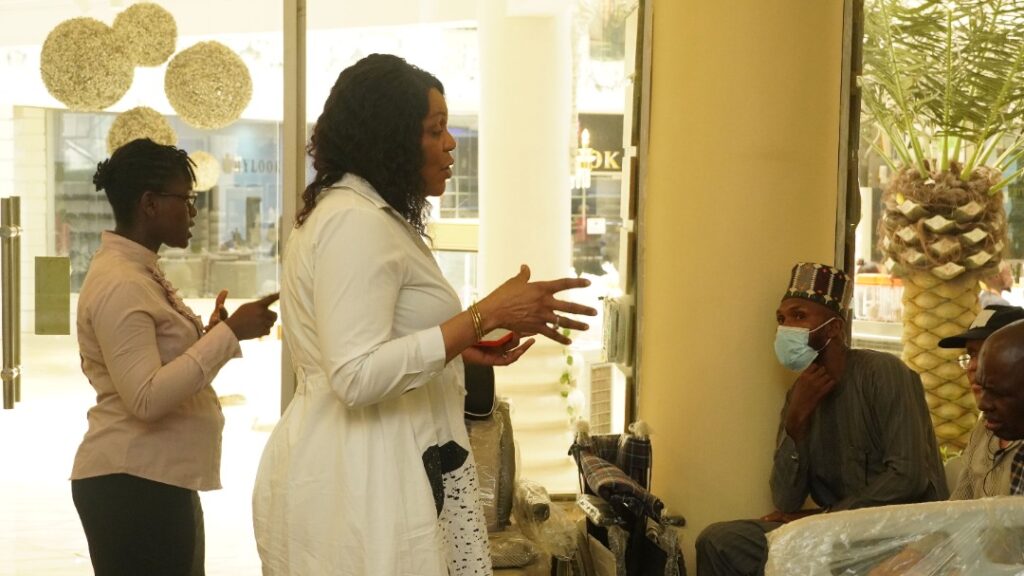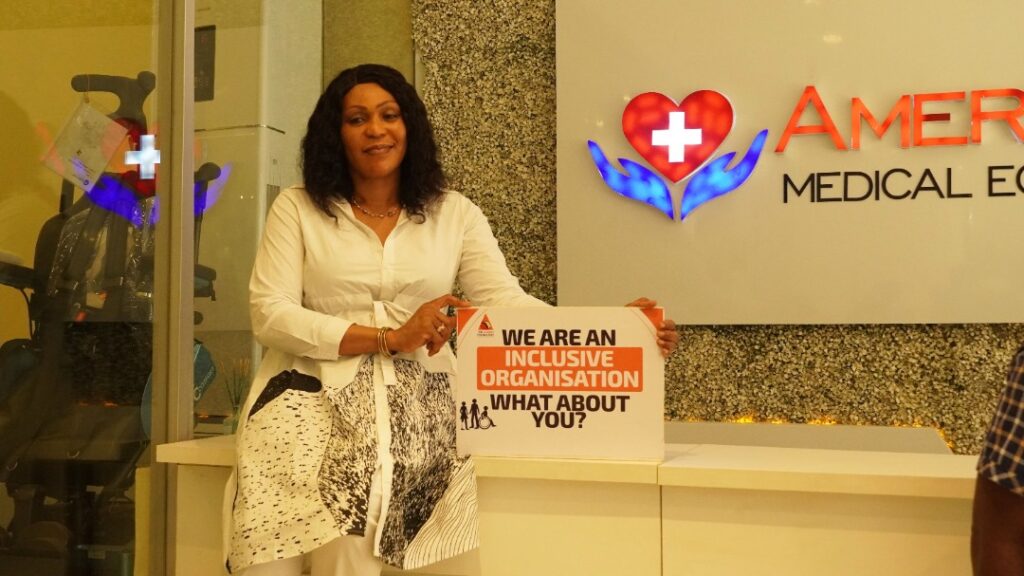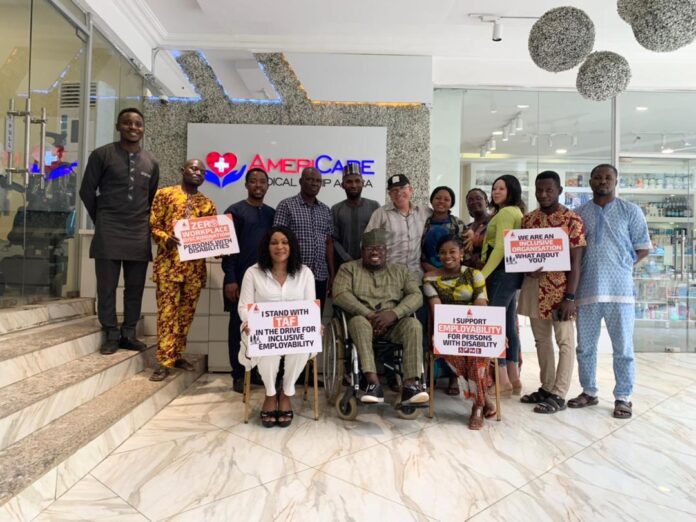Organizations of Persons With Disabilities (OPDs) in Federal Capital Territory have called for more partnership to enhance the affordability of assistive devices and provision of accessible facilities at de across FCT.
This call was made during an advocacy visit coordinated by The Albino Foundation (TAF) to Americare Medical Distributors Limited located at Tropic Galleria, Central Business District, Abuja.
A program officer at TAF, Victor Ebiloma in his opening remark said that the advocacy visit is part of the activities of TAF project (Advocacy and Engagement Capacity for Organizations of Persons With Disabilities (OPDs) in the FCT) supported by the European Union through the Agents for Citizens-Driven Transformation Programme being implemented by the British Council.
Speaking further, he informed that the project seeks to enhance the advocacy and engagement capacity of OPDs, as well as accelerate the implementation of the Disability Act.
He also told the management of the Americare that the visit is a follow up of the earlier visit advocating for accessibility of the shop which is one of the leading store on assistive devices and hospital equipment in Abuja.
Mr. Chris Agbo, the Executive Director, The Qualitative Magazine(TQM) and the Secretary General of Joint National Association of Persons With Disabilities (JONAPWD) FCT Chapter, while appreciating the management of Americare for the effort in making their shop wheelchair friendly pointed out that even though that there are existing ramps and makeshift ramps, they are not usable and they are not of standard. He urged the management to reach out to the owner of the shopping mall for adjustment and also demanded that they consult a wheelchair user through TAF who would be present to guide the construction so that the ramps would be usable.
He also said that it is to the benefit of the shopping mall owners to comply now because out of the five years transitory period on accessibility of public building as enshrined in the Nigeria Disability Rights Act, two years is remaining. After the transitory period, wheelchairs users may take up the option of litigation to enforce this provision.
He also spoke about the affordability of the assistive devices, complaining that if the devices are too expensive for the users, it is unavailable for them. He urged the management to see how they can work around it and make them affordable.
Mr. Jacob Agada, the Chairman, Nigeria Association of the Blind(NAB), FCT Chapter, drew the attention of the management to the 5 percent employment opportunity of persons with disabilities enshrined in the Disability Act and enquired if the organization has been implementing it. He advised that for an organization to be certified an inclusive organization, they should implement this aspect of the law.
Florence Marcus, the President, Amputee Coalition of Nigeria spoke about quality and affordability of the assistive devices. She was grateful that Nigeria can now boast of a place quality prosthetics can be found. She advised the management on how they can ensure that the assistive device which are of quality are also made affordable for persons with disabilities.
Mr. Afam Kasim from TAF reiterated the issue of the ramps and demanded for more makeshift ramps to be provided and also to ensure that all the ramps are usable. He also supported the earlier idea that wheelchair users should be consulted when the ramps are being constructed to establish efficiency.
Abdulmumuni Ujah, the Chairman, Joint National Association of Persons with Disabilities(JONAPWD) FCT Chapter said that it is inhuman to be carrying a wheelchair user saying that the ramps should be built in such a way that the wheelchair user can use it without assistance. He instructed that any ramp that doesn’t have such features, it cannot be certified usable for wheelchair users. Accessibility is all about independence of persons with disabilities and when the person with disability cannot independently use a facility, it cannot be said that there is accessibility.
He urged the organization to collaborate with OPDs to see how government can subsidize the cost of assistive devices to make them affordable for persons with disabilities.
He also urged the organization to mention disability whenever they are putting out advertisement for employment, it will encourage persons with disabilities to apply and they should ensure that they make the recruitment exercise inclusive.
Mrs Chi Iwuamadi, the Executive Director of Americare Medical Distributors Limited in her response appreciated TAF for the advocacy visit. She described the visit as a friendly one because Americare and TAF have been partners for 9 years which has helped her organization to understand what it takes to be inclusive.
She said that it is because of their understanding about disability inclusion that made them to leave their former office to the current place. They want to have office where people who are the users of their products can reach them without much stress.
She noted the observations on the existing ramps and promised to get back to the owners of the shopping mall and share the concerns with them and persuade them to make adjustments and also provide more ramps at strategic locations and most importantly carry along the users to ascertain their workability.
She regrets the high cost of the assistive devices saying that it is because her organization does not compromise quality and again, the high cost of importing the products. They are tariff free but there are other hidden cost and means of shipping them made the landing cost high and it is reflecting on the prices.
She proposed that if government can subsidize the cost of procuring these assistive devices, the cost will reduce, but if it remain like this couple with the exchange rate the products will be unaffordable to many of the users.
She offered to work with OPDs in advocating for introduction of subsidy on assistive devices. She also said that her organization does not discriminating against persons with disabilities when it comes to employment. They are interested on what the person can offer not the disability. She suggested that government should provide incentives that will encourage private businesses to be employing persons with disabilities.
